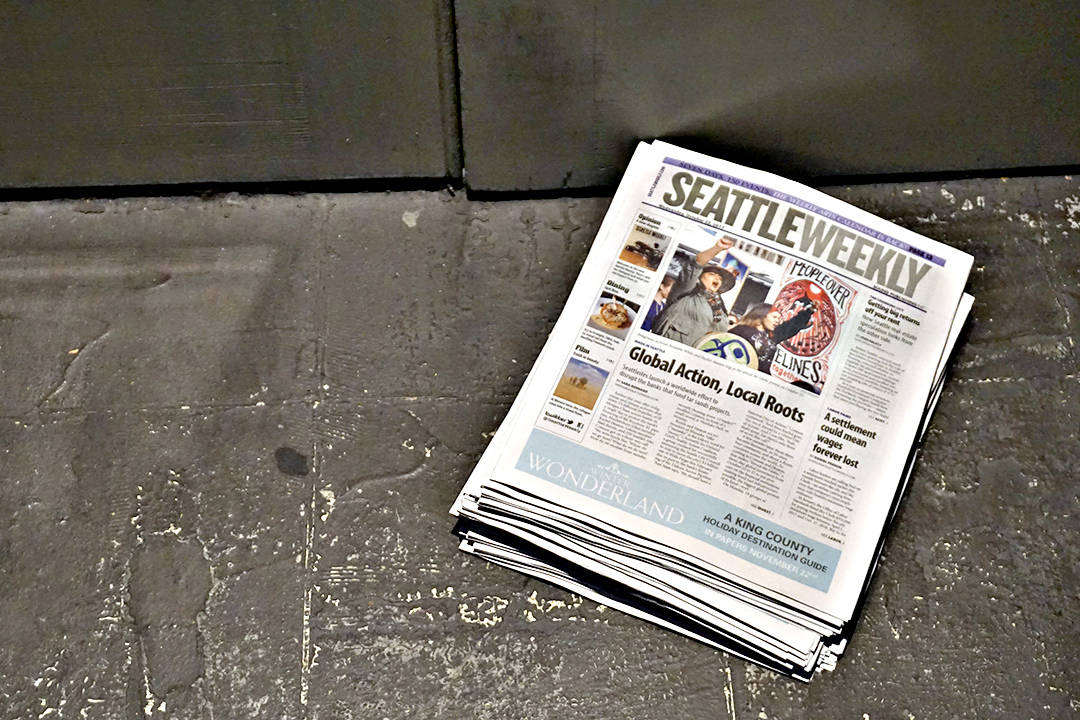Pulp: A Film About Life, Death & Supermarkets
Runs Wed., Nov. 19–Wed., Nov. 26 at Grand Illusion. Not rated. 90 minutes.
When Pulp hit it big with Different Class in 1995, reaching #1 on the UK charts and winning the Mercury Prize, the band was at the leading edge of the Britpop movement. Seven years and two albums later, it would all be over. But Pulp didn’t get to say a proper farewell, says lead singer Jarvis Cocker in Florian Habicht’s new documentary. This film is that proper farewell.
Set in Pulp’s hometown of Sheffield, the film finds the band at the tail end of its 2011–12 reunion tour. Instead of covering earlier, bigger tour stops, Habicht has a tight focus, training his camera on the group, the people of Sheffield, and the relationship between the two.
The result is a charming portrait of a band and its hometown, and the hometown often steals the show. Pulp fans, it seems, come in all shapes and sizes. Among others, we are introduced to a bald, grinning newspaper salesman who likes the way Cocker dances; a young musician who found inspiration in a Pulp album; an older woman with crutches who is curious about what motivates the band; and a young girl named Liberty, whose childish excitement over appearing in a movie is belied by her wisdom in matters of art and parenting. It’s a testament to the depth of the group’s music that it inspires such thoughtful appreciation.
It’s a unique view Habicht gives us—not the fan worship of most music docs. Cocker is a hero to these folks, yes, and definitely famous, but you get the sense that these people know him and his bandmates. This is a product of the location—some of the interviewees likely watched Cocker sling fish at the local supermarket as a teen—but also there’s something in Pulp’s music that creates this connection. After all, the band’s biggest hit is “Common People,” and these are the common people.
So this is a fond farewell, but also something of a redemption. As the band recounts, Pulp said farewell to Sheffield once before, with a disastrous 1988 club show, before moving to London. Now the plan is to recreate that show on a massive scale at the 13,500-capacity Motorpoint Arena, says Cocker. In footage of that concert, dispersed throughout, they appear to succeed. Cocker, once a reluctant performer, has turned into one of pop music’s most memorable front men. Even nearing 50, he is unafraid to hump a monitor or two while the band plays “This Is Hardcore.”The crowd eats it up and sings along, knowing every last word.
mbaumgarten@seattleweekly.com








